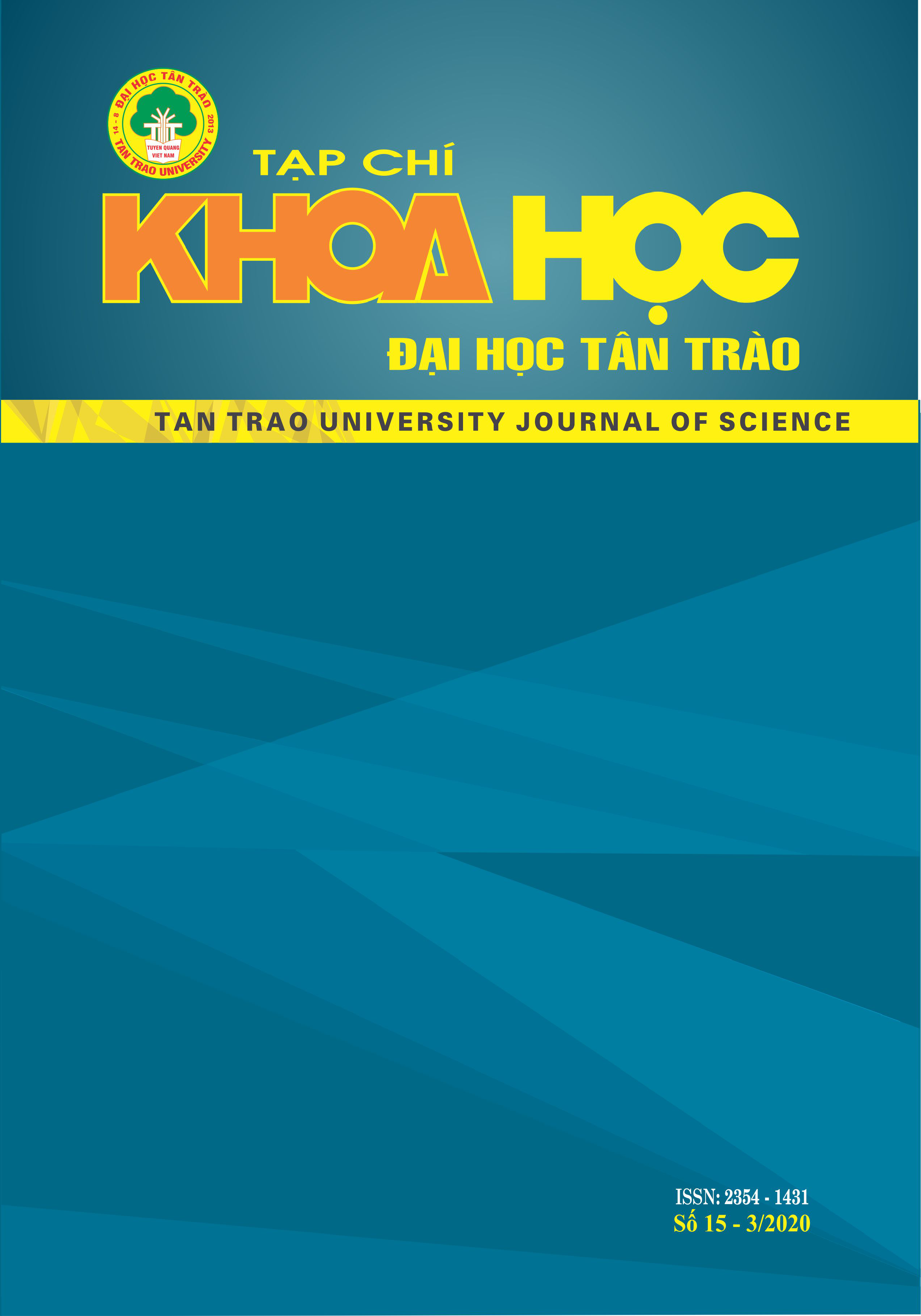Learn about Ho Chi Minh's philosophy of education
DOI:
https://doi.org/10.51453/2354-1431/2019/290Keywords:
Ho Chi Minh; education; philosophy of education; new people; cultural celebritiesAbstract
Ho Chi Minh was not only known as the hero of national liberation, the outstanding cultural celebrity of Vietnam, but he was also an exemplary teacher. Throughout his revolutionary life, Ho Chi Minh spent most of his mind on educating people. The thesis system of education together with his rich educational practice practices laid the foundations for the birth and development of Vietnam's revolutionary education. The system of his views is realized in revolutionary practice - that is Ho Chi Minh's philosophy of education. His educational philosophy is of great value and is enlightening the current educational career in Vietnam.
Downloads
References
1. Phạm Minh Hạc, Triết lý giáo dục thế giới và Việt Nam, Nxb Chính trị quốc gia Sự thật, Hà Nội, 2013.
2. GS, TS Nguyên Hùng Hậu, Suy ngẫm về triết Hồ Chí Minh, Nxb Chính trị quốc gia Sự thật, Hà Nội, 2015.
3. Học viện Chính trị, Tư tưởng Hồ Chí Minh về giáo dục, Nxb Quân đội nhân dân, Hà Nội, 2012.
4. http://lyluanchinhtri.vn/home/index.php/bai-noi-bat/item/967-triet-ly-giao-duc-ho-chi-minh.html.
5. Hồ Chí Minh, Toàn tập, Nxb Chính trị quốc gia, Hà Nội, 2011.
6. Hans D’Orville: “Tư tưởng Hồ Chí Minh vẫn giữ giá trị thời đại”, WWW.vietnam+/VietnamPlus.
Downloads
Published
How to Cite
Issue
Section
License

This work is licensed under a Creative Commons Attribution-ShareAlike 4.0 International License.
All articles published in SJTTU are licensed under a Creative Commons Attribution-ShareAlike 4.0 International (CC BY-SA) license. This means anyone is free to copy, transform, or redistribute articles for any lawful purpose in any medium, provided they give appropriate attribution to the original author(s) and SJTTU, link to the license, indicate if changes were made, and redistribute any derivative work under the same license.
Copyright on articles is retained by the respective author(s), without restrictions. A non-exclusive license is granted to SJTTU to publish the article and identify itself as its original publisher, along with the commercial right to include the article in a hardcopy issue for sale to libraries and individuals.
Although the conditions of the CC BY-SA license don't apply to authors (as the copyright holder of your article, you have no restrictions on your rights), by submitting to SJTTU, authors recognize the rights of readers, and must grant any third party the right to use their article to the extent provided by the license.


